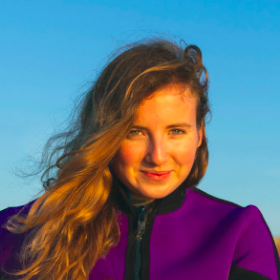
The apparel industry produces 10 percent of all humanity's carbon emissions and is the second-largest consumer of the world's water supply. To that end, one survey found that around 88 percent of consumers would like brands to help them make more ethical choices when it comes to shopping. Nevertheless, an overwhelming amount of misleading information makes shopping with a conscience a challenge for many consumers. That is why the new ethical app, Good On You, has made it its mission to expose the impact that retail brands have on the environment and society whilst providing transparency to the buyer.
Joining Good On You on this journey is the global shopping and payments service Klarna. The pair have teamed up to create a sets of sustainable apparel collections within the Klarna app. Both companies believe that their partnership will help customers make informed shopping decisions with actionable insights.
Good On You is a mobile and web app that was founded in Australia in 2015. The app works by providing ratings on the impact clothing apparel has on the planet, people and animals. It then proceeds by presenting an overall valuation which ranges from “great” to “we avoid.” To derive accurate ratings, Good On You sources its information from brands, parent companies, and robust third-party indices such as the Fashion Transparency Index and CDP Climate Change. Together, Good On You has collected more than 500 data points per brand across more than 100 key sustainability issues, indicators and standards systems.
The researchers at Good On You have already revealed fashion companies that are demonstrating a phlegmatic response to the climate emergency. For example, leading fashion brands, such as Hollister and Victoria's Secret, have shown, according to Good On You, little or no evidence to minimize textile waste, hazardous chemicals or reduce water reduction initiatives. Ranking among the largest fashion retail brands in the world, brands like these have the potential to be driving forces behind solutions for climate change.
Not only is Good On You exposing the slow responses from leading fashion brands, but also the ones that are the organization says are misleading. In 2019, one of the biggest fast fashion retail brands in the world, Boohoo, launched its “Sustainable Collection” and stated that the materials used were “recycled.” The company also made the claim that “dressing more sustainably has never been so easy!” However, after sourcing detailed information on Boohoo’s new collection, Good On You later revealed that amongst the materials being used was acrylic, which is a type of plastic that is notoriously difficult to recycle. Furthermore, a lot of the items in Boohoo’s collection cost under $13 to $14 (approximately £10), which begs the question, how much are the workers who make the brand’s apparel being paid?
Kathy Kearns, Head of Enterprise at Good On You, recently stated:
“The fashion industry urgently needs to make progress to address its impacts on people and the planet. At Good On You, we believe that shoppers have significant power to hold brands accountable, but with pervasive greenwashing, it can be challenging for consumers to see through all the sustainability spin.”
If apparel brands desire to be included on indices including the new Sustainable Collections launched by Klarna and Good On You, then they will have to move away from the industry’s conventional approach to business, and invest more resources into improving their environmental and societal impacts.
Both Good On You and Klarna share the belief that these new collections will provide shoppers with easy access to finding sustainable brands and help customers make more ethical and responsible decisions. The collections follow the launch of Klarna's carbon emissions tracker last year, which the organization set up to provide shoppers with access to carbon footprint insights and the average carbon footprint for each purchase they make. This year, Klarna plans to expand the tracker to include CO2 emissions at the product level, enabling like-for-like comparisons on specific items.
David Sandström, Chief Marketing Officer at Klarna, added, “Our vision is to empower consumers to vote with their wallets to enact change. As a first step, we gave users insights into the environmental impact of their shopping with our CO2 tracker. Now, we are giving consumers powerful tools to act on this knowledge and inform their shopping choices.”
The first set of collections features 23 clothing brands, including Asket, Pangaia, Lucy & Yak, Mara Hoffman and Nudie Jeans. All of the brands included in Klarna’s Sustainable Collections today, and in the future, will have received top scores from Good On You for their sustainability track records. You can peruse through the apparel collections here.
Image credit: Rio Lecatompessy via Unsplash

Holly is a recent graduate from the University of Southampton with a bachelor's degree in English Literature and Philosophy. She is currently working as a freelance writer and has a strong interest in the outdoors lifestyle, environmental issues and sustainable solutions. In her free time, she trains and competes internationally as a professional kite surfer.














